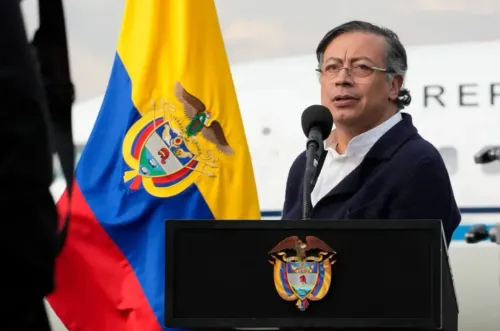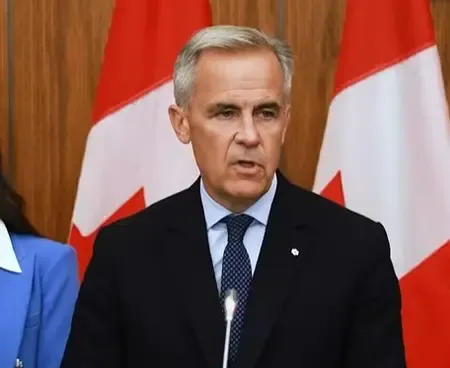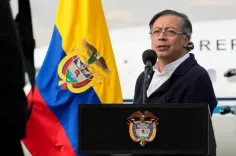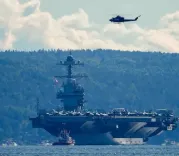Is the Pentagon Sending an Aircraft Carrier to Latin America?
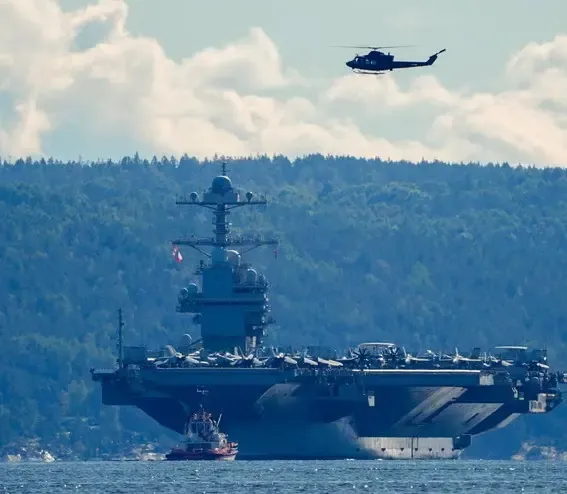
Synopsis
Key Takeaways
- The US is deploying significant military resources to Latin America.
- The focus is on combatting transnational crime and narco-terrorism.
- Criticism exists regarding the legal basis for military strikes.
- The operation may alter US relations with regional governments.
- Local analysts see this as an expansion of anti-cartel efforts.
Washington, Oct 25 (NationPress) The US military is deploying the Gerald R. Ford Carrier Strike Group along with the associated carrier air wing to the jurisdiction of the US Southern Command, as announced by Pentagon spokesperson Sean Parnell on social media.
This command area encompasses the entirety of Latin America south of Mexico, the surrounding waters of Central and South America, and the Caribbean Sea.
The deployment aims to fulfill the President's directive to dismantle Transnational Criminal Organizations (TCOs) and combat narco-terrorism in defense of the Homeland, Parnell stated on Friday via X.
He further noted, “These forces will enhance and augment existing capabilities to disrupt narcotics trafficking and degrade and dismantle TCOs.”
Local analysts interpret this action as a signal that the Trump administration is expanding its anti-cartel efforts, transitioning from targeting small vessels in international waters to potentially engaging land-based operations throughout Latin America, according to a report from Xinhua news agency.
The current military buildup in the Caribbean represents the largest US military presence in the region in over three decades, dating back to the American invasion of Panama, as reported by the Wall Street Journal.
Earlier on Friday, US Secretary of Defense Pete Hegseth reported that the military had sunk a suspected drug-smuggling vessel in international waters of the Caribbean overnight, resulting in the deaths of all six individuals aboard.
This marks the first nighttime assault on a suspected narcotics vessel and the 10th operation since September, increasing the total death toll from these strikes to over 40.
On October 2, the Trump administration informed Congress via a memo that the US is engaged in a “non-international armed conflict” with drug cartels designated as terrorist organizations, treating their members as “unlawful combatants.”
These strikes have faced significant backlash from Congressional Democrats.
Senator Jack Reed of Rhode Island, the leading Democrat on the US Senate Committee on Armed Services, expressed that the US government has “offered no credible legal justification, evidence or intelligence” for the strikes.
Venezuelan President Nicolas Maduro has repeatedly accused the United States of using cartel threats as a pretext for regime change and an increased military footprint in Latin America.
Colombian President Gustavo Petro condemned the US government, labeling the killings of drug suspects at sea as “murder.”


